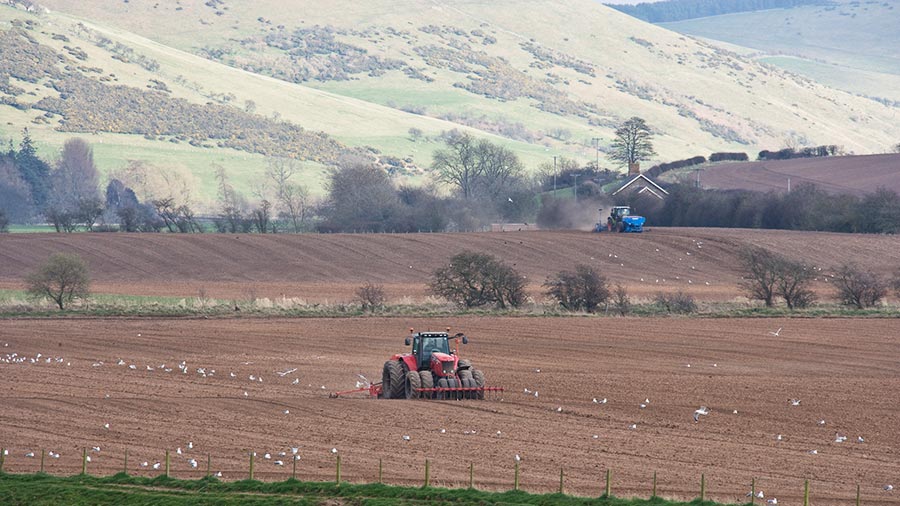Scottish Ag Bill must learn lessons from ELM, says NFUS
 © Tim Scrivener
© Tim Scrivener NFU Scotland (NFUS) has called on the Scottish government to learn from mistakes made south of the border – and to keep farmers onside as new agricultural policy is introduced.
Unveiling the union’s 55-page response to the consultation on the Scottish government’s Agriculture Bill, NFUS director of policy Jonnie Hall said lessons being learned on Defra’s Environmental Land Management (ELM) and Sustainable Farming Incentive (SFI) schemes showed that if farmers were faced with too many complications and additional management burdens, they would simply take a big step back.
See also: Scottish Ag Bill must prioritise food production, says NFUS
“That’s exactly what’s going on in England – and we’re asking the Scottish government to take heed of that and to take farmers and crofters with them on the journey rather than enforce or compel them to do certain things that are not in their interest.”
Mr Hall said only farmers and crofters could deliver the ambitious environmental, biodiversity and climate change outcomes which the administration hoped to achieve in Scotland.
Commitment on future funding
“Our response to the consultation has laid down a clear marker that future agricultural policy…must first and foremost work in the interests of Scottish agriculture and allow farmers and crofters to focus primarily on food production and on the back of that – rather than on the front – allow these additional outcomes to be delivered.”
He said that while the union appreciated that the consultation was primarily about the necessary powers to deliver a new bill, it had failed to fill the “alarming policy void” which Scottish farmers and crofters were currently facing.
NFUS president Martin Kennedy said that while delivering a policy which enabled the industry to deliver what was expected of it was crucial, this had to be backed up by a clear commitment on future funding with a dedicated and sufficient budget delivered on a multi-annual basis, which was ringfenced for agriculture.
But he admitted that this was no easy ask in a time of budgetary restraints.
“That is why we have been lobbying strongly in Westminster in recent times as well – as about £637m comes from the UK Treasury as opposed to £17m direct from the Scottish government.”
‘Support active farmers’
Mr Kennedy stressed that any new system should deliver funding for active farming rather than land ownership or occupation.
“But our main aim is not necessarily about minimising ‘winners and losers’, it is about ensuring that active agriculture is supported and that is why we have called for proper analysis and modelling exercises to be conducted on the proposed changes.”
While the union backed front-loading of scheme payments to benefit smaller producers, Mr Kennedy said it would not entertain plans to place a cap on payments to bigger farm businesses.
“Many of the bigger enterprises out there have invested heavily in their businesses and are employing a lot of people and they will need to deliver the additional benefits which are being sought at a similar scale,” he explained.
Scottish crofting group slam lack of policy detail
Six years on from the Brexit referendum, it is “flabbergasting” that the farming sector still knows little more about the country’s future policy, Scotland’s dedicated crofting organisation says.
The Scottish Crofting Federation (SCF) attacked the lack of policy detail in the Scottish government’s Agriculture Bill, in its response to the consultation.
The SCF also expressed concerns at what it claimed was a lack of any real understanding among those drawing up future strategy of the issues being faced by smaller units and those working in areas of natural constraint.
“It’s a worrying sign that there is no clear and explicit recognition of these constraints in the bigger picture” said SCF chief executive Patrick Krause.
He expressed disappointment that there was no real indication of any plans to cap some of the multimillion-pound support payments to larger units.
“For too long, agricultural payments have favoured the largest businesses.
“During a time of constrained budgets there is a clear need to focus what is technically income support towards those with the lowest incomes – and we have to ask if this includes those claiming millions of pounds in support,” said Mr Krause.
